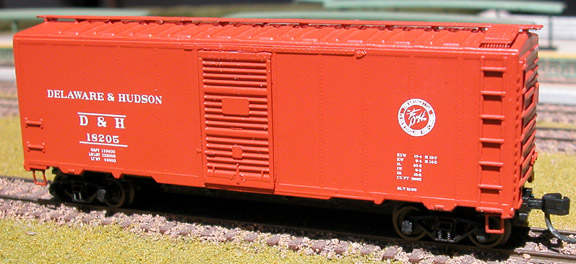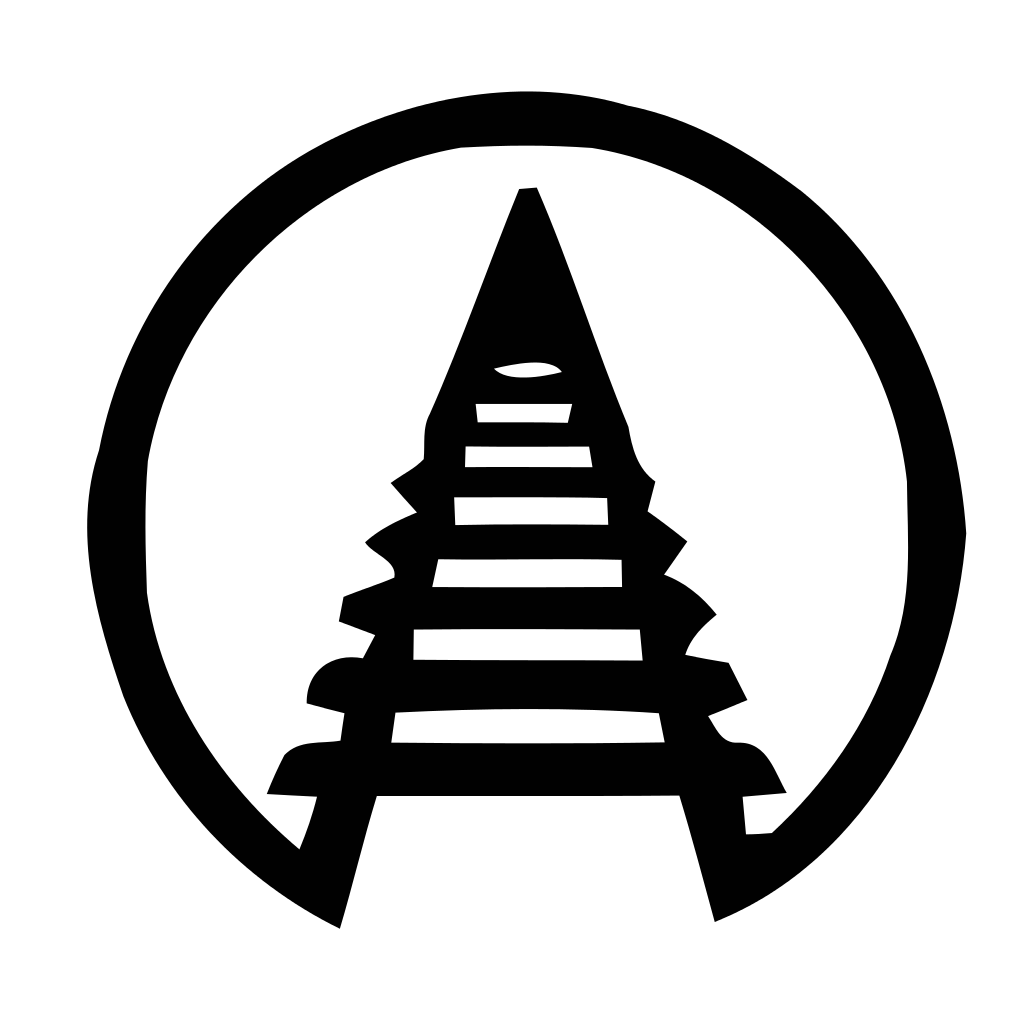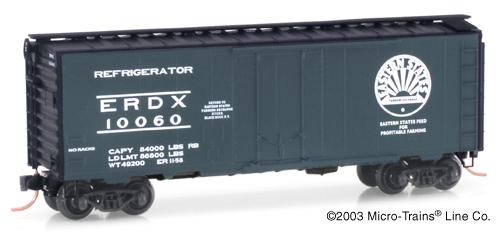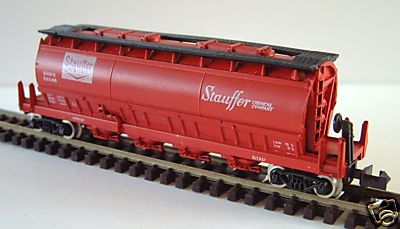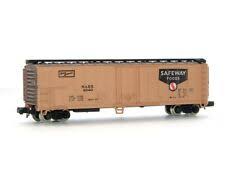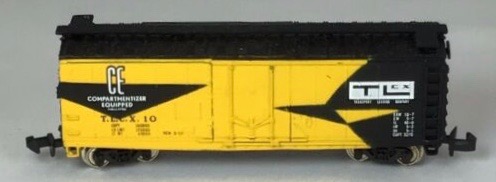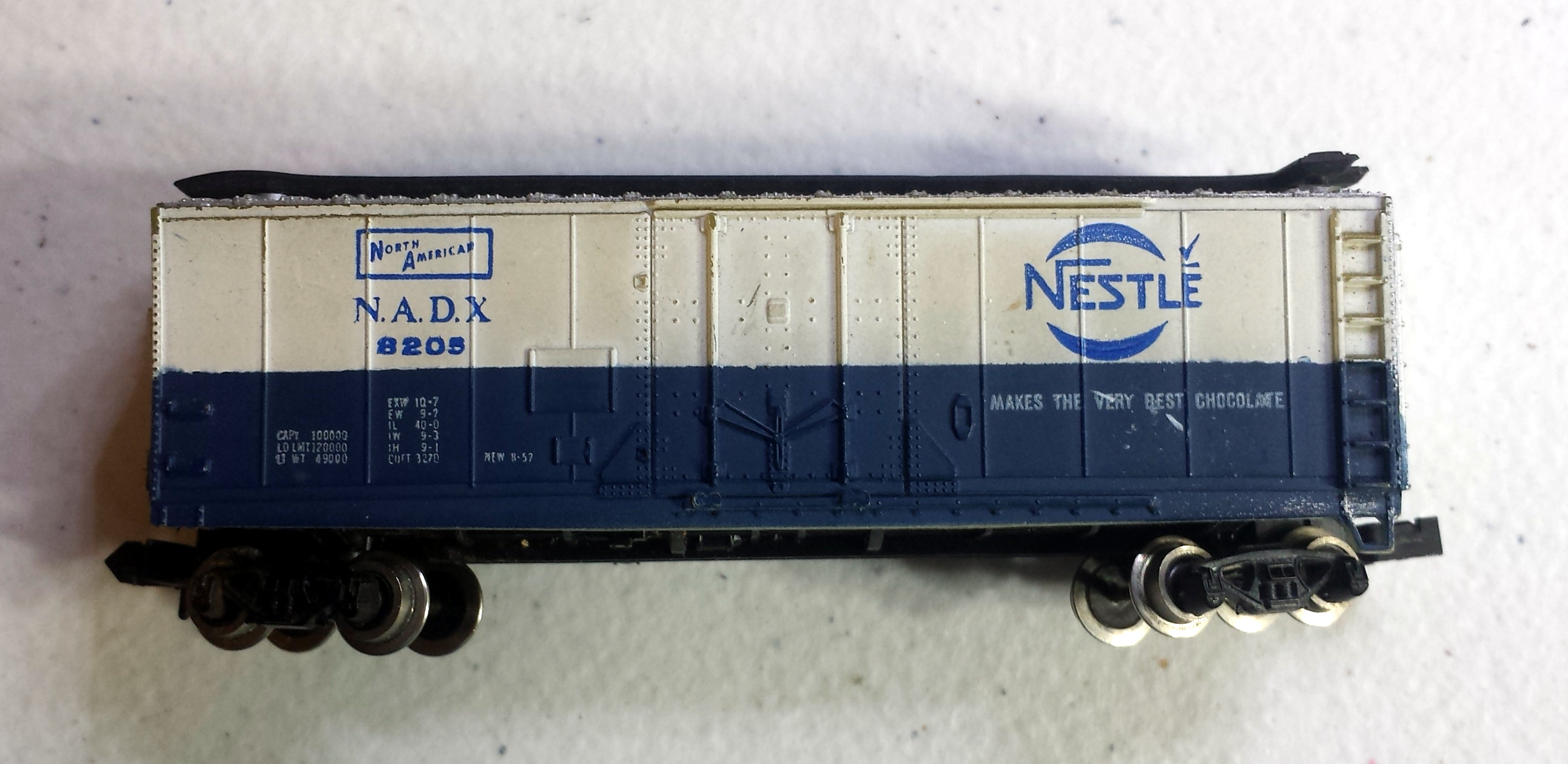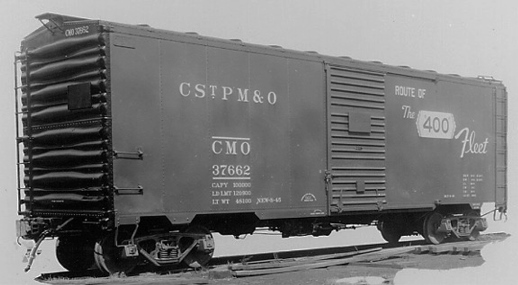Prototype History: The Association of American Railroads had been establishing design standards for freight cars since the early part of the century. Each new design standard meant higher capacity, lighter, more durable cars. The 1937 standard 40' box car featured an interior height of 10'. Just prior to America's entry into the war, there was a push for an even larger interior height for the AAR standard. The first cars that would eventually be termed 1944 AAR, were actually built in 1941 but the war delayed its declaration as the standard. The new taller cars required a new design of end. Corrugated metal ends had been used since the days when wood side cars dominated for a very good reason, shifting loads would burst through wooden ends during sudden starts and stops! These corrugated panels were stamped in two sections, split horizontally down the middle. The 1937 standard had 5 ribs on one half and 4 ribs on the other -- creating what is called a 5-4 Dreadnaught end. The slightly taller 1944 model required something a little different. The lower panel has 4 ribs while the upper panel has 3 then a space and a final rectangular rib at the top. Called a 4-3-1 (or R-3-4) Improved Dreadnaught end, this design would dominate new box car construction for years.
Road Name History: 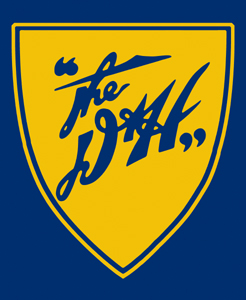 The Delaware and Hudson Canal Company would found the Delaware and Hudson Railway to support its mission of getting fuel to the timber denuded cities of the northeast when it was discovered that 'rock coal' or Anthracite could be burned successfully. In time the railway eclipsed the parent company, and America's brief canal age would be ended by the availability of more powerful traction locomotives, so today the canal is little known. Today the Delaware and Hudson Railway (reporting mark DH) is again a subsidiary railroad that operates in the northeastern United States. Since 1991 it was owned and operated by the Canadian Pacific Railway under the rail subsidiary Soo Line Corporation also controls the Soo Line Railroad, Canadian Pacific Railway is owned by Canadian Pacific Railway Limited.
The Delaware and Hudson Canal Company would found the Delaware and Hudson Railway to support its mission of getting fuel to the timber denuded cities of the northeast when it was discovered that 'rock coal' or Anthracite could be burned successfully. In time the railway eclipsed the parent company, and America's brief canal age would be ended by the availability of more powerful traction locomotives, so today the canal is little known. Today the Delaware and Hudson Railway (reporting mark DH) is again a subsidiary railroad that operates in the northeastern United States. Since 1991 it was owned and operated by the Canadian Pacific Railway under the rail subsidiary Soo Line Corporation also controls the Soo Line Railroad, Canadian Pacific Railway is owned by Canadian Pacific Railway Limited.
The name itself originates from the 1823 New York state corporation charter listing the unusual name of "The President, Managers and Company of the Delaware & Hudson Canal Co." authorizing an establishment of "water communication" between the Delaware River and the Hudson River.
Nicknamed "The Bridge Line to New England and Canada," the D&H helped connect New York with Montreal, Quebec and New England. It called itself "North America's oldest continually operated transportation company." Between 1968 & 1984, the D&H was owned by Norfolk & Western. N&W sold it to Guilford Transportation, who cast it into bankruptcy in 1988 and in 1991, the D&H was purchased by Canadian Pacific Railway (CP).
On September 19, 2015, Norfolk Southern Railway assumed control and began operations of their recently acquired Delaware & Hudson "South Line", the 282 miles from Schenectady, New York to Sunbury, Pennsylvania from CP. The Delaware & Hudson "South Line" is a rail route that now consists of three rail lines, the Sunbury Line, the Freight Line, and the Voorhesville Running Track; the Sunbury Line absorbed the original route of the Delaware, Lackawanna and Western Railroad main line which contains the Nicholson Cutoff during that rail line's history.

The name itself originates from the 1823 New York state corporation charter listing the unusual name of "The President, Managers and Company of the Delaware & Hudson Canal Co." authorizing an establishment of "water communication" between the Delaware River and the Hudson River.
Nicknamed "The Bridge Line to New England and Canada," the D&H helped connect New York with Montreal, Quebec and New England. It called itself "North America's oldest continually operated transportation company." Between 1968 & 1984, the D&H was owned by Norfolk & Western. N&W sold it to Guilford Transportation, who cast it into bankruptcy in 1988 and in 1991, the D&H was purchased by Canadian Pacific Railway (CP).
On September 19, 2015, Norfolk Southern Railway assumed control and began operations of their recently acquired Delaware & Hudson "South Line", the 282 miles from Schenectady, New York to Sunbury, Pennsylvania from CP. The Delaware & Hudson "South Line" is a rail route that now consists of three rail lines, the Sunbury Line, the Freight Line, and the Voorhesville Running Track; the Sunbury Line absorbed the original route of the Delaware, Lackawanna and Western Railroad main line which contains the Nicholson Cutoff during that rail line's history.
Brand/Importer Information: DeLuxe Innovations is a "wholesale manufacturer" of model trains. We manufacture scale replica train models and sell them to hobby shops and distributors worldwide. 2013 marked the 20 year anniversary of DeLuxe Innovations brand trains. There are over 25 body styles in our product line and all of the cars in our single and multi-car packs have different road numbers. DeLuxe Innovations, Inc. is owned by Dave Ferrari, founder of Squeak N Products. We are located in Midland Park, New Jersey. When Dave purchased the business it was located in Burbank, California which would have been a bit of a long commute so the move to the East Coast was planned. Our first East Coast location was in Whippany, NJ along the Whippany River.
The business was started in 1993 by George Johnsen and Roberta Liebreich in Burbank, California. They had a philosophy that just wouldn't allow using a coal car as a "stand in" for a woodchip car, or printing any and all boxcar paint schemes on a PS-1. Starting with the release of the first ever etched metal parts for a ready to run car (1994's Twinstack's metal walkways) through the full dimension underframe and etched metal roofwalk (1996's 1944 AAR Boxcar) to the challenging RoadRailer system (2000), our products have been accurate to target the modeler or enthusiast.
You can also follow DeLuxe on Twitter
The business was started in 1993 by George Johnsen and Roberta Liebreich in Burbank, California. They had a philosophy that just wouldn't allow using a coal car as a "stand in" for a woodchip car, or printing any and all boxcar paint schemes on a PS-1. Starting with the release of the first ever etched metal parts for a ready to run car (1994's Twinstack's metal walkways) through the full dimension underframe and etched metal roofwalk (1996's 1944 AAR Boxcar) to the challenging RoadRailer system (2000), our products have been accurate to target the modeler or enthusiast.
You can also follow DeLuxe on Twitter
Item created by: Powderman on 2018-10-13 09:05:39. Last edited by CNW400 on 2020-05-29 11:25:31
If you see errors or missing data in this entry, please feel free to log in and edit it. Anyone with a Gmail account can log in instantly.
If you see errors or missing data in this entry, please feel free to log in and edit it. Anyone with a Gmail account can log in instantly.


